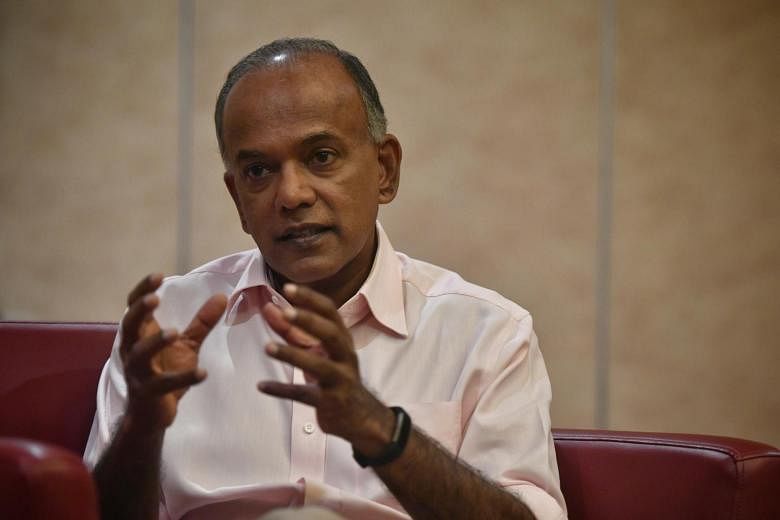An erosion of trust in governments and institutions has threatened the very foundations of democracy worldwide.
Growing inequality, broken political systems, a media aligned with partisan politics, and the spread of fake news on new media have deepened this crisis.
Describing this as a fundamental problem in many countries, Home Affairs and Law Minister K. Shanmugam yesterday urged members of the House to pay heed to this bigger picture, to understand why Singapore needs fake news laws.
"It will be very unwise for us to watch and do nothing because it can sweep us over very quickly. I believe we are at one of those crucial turning points in history," he said as he presented the Protection from Online Falsehoods and Manipulation Bill for debate.
"This Bill is an attempt to deal with one part of the problem. The serious problems arising from falsehoods spread through new media. And to try and help support the infrastructure of fact and promote honest speech in public discourse. It is an important part - even as we work on other aspects."
The minister spent much of his two-hour-long speech setting out the rationale for the proposed law, which has come under fire from some segments for giving ministers powers to decide first what is falsehood and how to tackle it.
Under the Bill, a minister decides whether to act against a piece of falsehood on the Internet, and can order that it be taken down or ask for corrections to be put up alongside it.
The Workers' Party yesterday joined in the chorus of objection, with party chief Pritam Singh and former chief Low Thia Khiang opposing what they said were the sweeping powers that the law will give ministers. Mr Low, who spoke near the end of the day, said the Bill was "more like the actions of a dictatorial government that (will) resort to any means to hold on to absolute power".
Earlier, in his speech, Mr Shanmugam had sought to dispel such misconceptions, saying that the Government's powers under existing legislation, such as the Broadcasting Act and Telecommunications Act, are wider than those proposed under the Bill.
"Some of the discussion by those opposed to this Bill... seems to be without an understanding of the existing position," he said, adding that the scope of the Bill was narrower.
But a new law that is targeted at the problem of fake news and able to deal with its viral nature is preferable, he added.
Technical reasons aside, he said, the Bill is meant to protect Singapore from the destructive forces that have eroded trust in governments and important public institutions in many countries, including the United States and Britain.
The crisis of trust has in turn opened the doors to the dangerous politics of populism in many countries, making it harder for governments to fix problems, he added as he set out the context in which the Bill was proposed.
While Singapore is doing well compared with other countries, with trust in the Government and the media still relatively high, he added, "we cannot ignore the global risk, and we are likely to be impacted by the same forces".
Mr Shanmugam yesterday also assured MPs that it would not be difficult for individuals to challenge a minister's decision under the draft law.
Giving an overview of the appeals process, he said individuals can have their appeals heard in court in as little as nine days, and no court fees will be charged for the first three days of the hearing.
The Bill, more than a year in the making since public consultation started in January last year, is one of the most scrutinised pieces of legislation in recent years.
More than 30 Members of Parliament will speak about it over two days of debate, which will end today.


